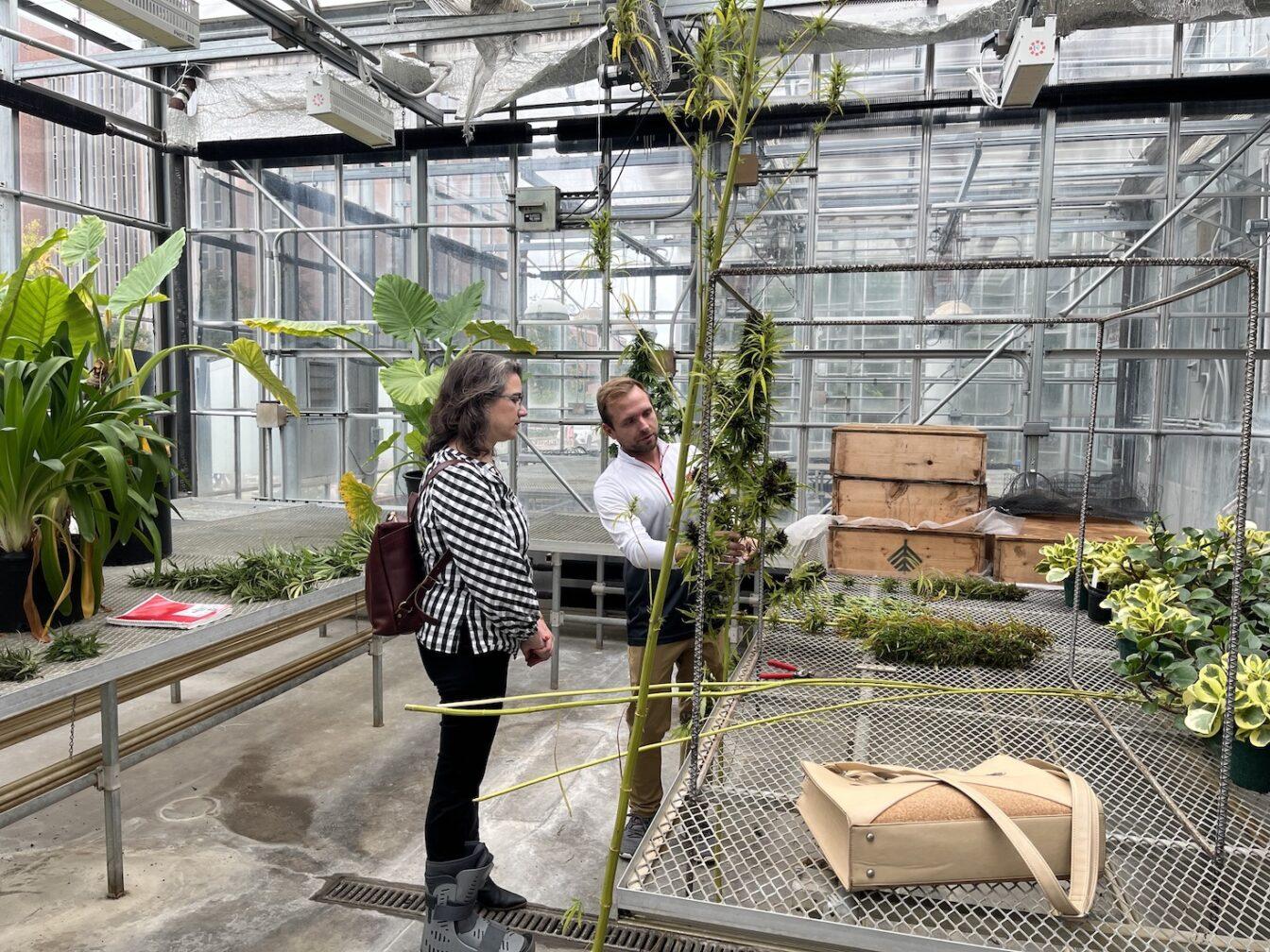Wisconsin State Sen. Melissa Agard (D-Madison) recently introduced a bill to the Wisconsin Senate to fully legalize cannabis at the state level. The bill’s provisions include a permitting program for producing, processing and selling marijuana products, creating an excise tax on recreational marijuana sales and expunging criminal convictions that would have been decriminalized by the new law.
The medicinal properties of marijuana’s two main cannabinoids — cannabidiol and delta-9-tetrahydrocannabinol — have been researched in pharmacological settings, but getting marijuana approved for treatments federally struggles due to a mix of legal and political challenges.
Currently, only patients prescribed by their physicians are allowed to possess CBD for medical purposes in Wisconsin. At the state level, there are no dispensaries. Still, municipal and city ordinances in both Madison and Milwaukee have effectively decriminalized possession of both CBD and marijuana for recreational use, according to the NORML Foundation.
Twenty-four states have fully legalized marijuana possession for any use, according to Reuters, and Ohio’s Issue 2 ballot initiative included in the November election included marijuana legalization.
But individual states’ laws on marijuana vary widely. Some state regulations permit medical use and decriminalize recreational use like in North Dakota, according to the Marijuana Policy Project. Other states like Iowa only allow low-THC/high-CBD products for approved patients, according to Iowa’s Health and Human Services.
Each state’s definition of decriminalization also varies, differing by penalty, amount of possession that incurs a greater penalty and the THC content of the marijuana, according to the NORML Foundation.
University of Wisconsin professor of Pharmacy Barry Gidal said his two concerns with legalizing medical marijuana in both pharmaceutical and private practice are oversight and specificity. He also believes marijuana should be decriminalized to combat social injustice in Wisconsin.
“The over-the-counter CBD that’s out there — it’s of varying quality and there is no real oversight of how much is in the bottle, what contaminants are there, how much THC is in it,” Gidal said. “There is a need like any other drug for consumers to have some confidence.”
Gidal said dispensaries selling products to people self-medicating should be tied into traditional healthcare systems for help with dosing and understanding how marijuana can interact with other drugs the person may be using for their condition.
“Medical marijuana” is also a misleading term, Gidal said.
“We’ve used that term, ‘medical marijuana,’ that implies to people that it’s a single drug,” Gidal said. “If you look at cannabis, it contains well over 100 [cannabinoids], and there are other things that are in it too … you’re getting a lot of different drugs, some of which may be beneficial, some working together may cause drug interactions, some may do nothing at all.”
At the federal level, Epidiolex (cannabidiol) is one of three Food and Drug Administration-approved drugs derived from marijuana, used for treating seizures associated with Lennox-Gastaut syndrome andDravet syndrome, according to the FDA. Other FDA-approved drugs containing THC, Marinol and Syndros, are used for treating nausea and vomiting associated with cancer chemotherapies and loss of appetite in AIDS patients.
For the production of Epidiolex, the plants are grown under specific conditions, processed and refined for uniform dosing of CBD, Gidal said. Slight differences in growing conditions, from sunlight received to the soil to how closely the plants are grown together influence their composition.
Research in Wisconsin relating to hemp, a classification of the cannabis plant containing less than 0.3% THC, was only permitted under the 2018 Farm Bill, which removed hemp from the Controlled Substance Act federally, according to the Wisconsin Legislative Council, and allowed funding for research on hemp and hemp products. Act 68 was signed in Wisconsin to update state laws in 2019, removing hemp from the Wisconsin Uniform Controlled Substances Act, according to the Wisconsin State Legislature.
Shortly after this legislation, UW assistant professor Shelby Ellison started her lab studying farming techniques, genetics and plant breeding for hemp. The lab relies on USDA grants for their research projects, which require that any plants with a THC content greater than 0.3% be destroyed. Ellison said the laws are restrictive to research.
“We like to look at as broad of a genetic diversity as we can, and we screen for many different traits to find parents to cross for genetic improvements, so you’re very limited at what you’re able to look at when you exclude plants with more than 0.3% THC,” Ellison said. “Similarly, if you cross two plants that are hemp, sometimes the progeny [offspring] will no longer be hemp.”
States that have legalized marijuana see increases in research in public and private sectors, giving them a sizable head start compared to states that waited longer, Ellison said. Changes to Wisconsin laws would not affect the federally funded research, but state taxpayer dollars could go towards research on marijuana at the Universities of Wisconsin, which is especially important considering the state’s designation as a tech hub for biohealth.
Changes to federal research would only change if marijuana was rescheduled or descheduled completely from the Controlled Substances Act. The Department of Health and Human Services recommended in August that the Drug Enforcement Agency ease marijuana restrictions, reclassifying it from a schedule I drug to a schedule III drug, according to Reuters.
Schedule I drugs have “no currently accepted medical use and a high potential for abuse” according to the DEA, and Schedule III drugs have “moderate to low potential for physical and psychological dependence.” The DEA is conducting its own review, according to Reuters.
Ellison said the social stigma around cannabis works against her efforts in science outreach. For example, talking to children about her previous work with carrots was easier than her current work on cannabis.
“I have a kid and I study cannabis, so there’s already this connotation that comes with that,” Ellison said. “That would not be the case if I worked in any other plant.”


